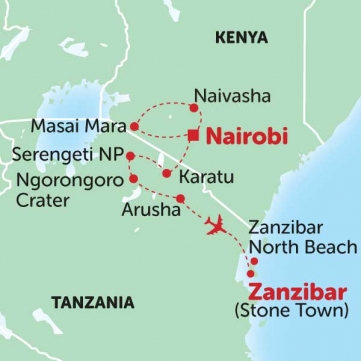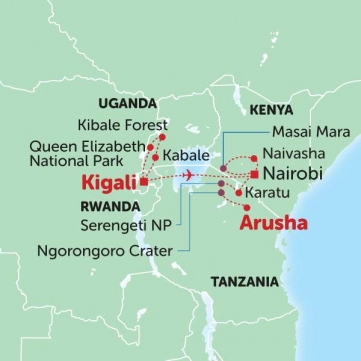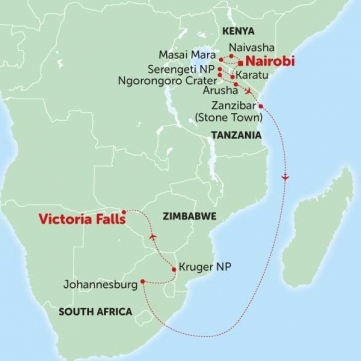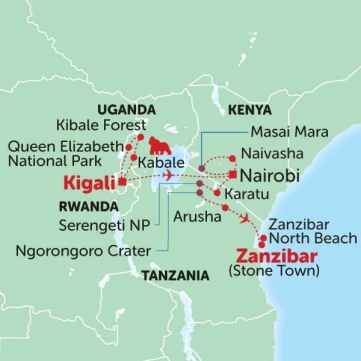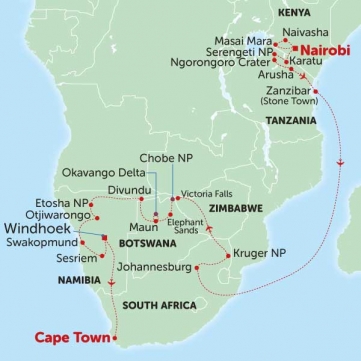Book NOW for $1 £1 €1 • Flexible Payments • No Change Fees • Private Departures Available
- Home >>
- Best time to visit Kenya
Best time to
visit Kenya
As a general rule, the best time to visit Kenya is during the dry season which runs from July to September. This is also when the Great Migration happens in the Maasai Mara which is often the biggest highlight of a tour to Kenya. The sun is shining, the skies are clear and it’s very unlikely to rain. Mosquitoes tend to be fewer too. All of these benefits, however, are compromised by the high prices and heavy crowds, especially in the most popular national parks. December is also a good time to visit Kenya. The rain tends to be only in short, manageable bursts and the vegetation is still a rich green.
Did you know?
Searching for the ‘The Big Five’ refers to spotting lions, leopards, rhinos, elephants and buffalos.
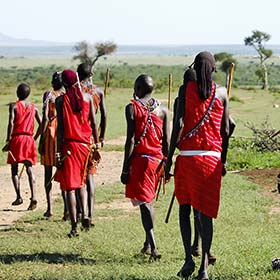
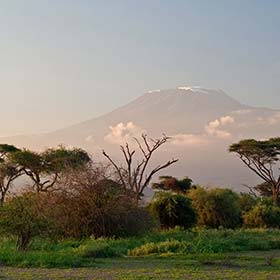
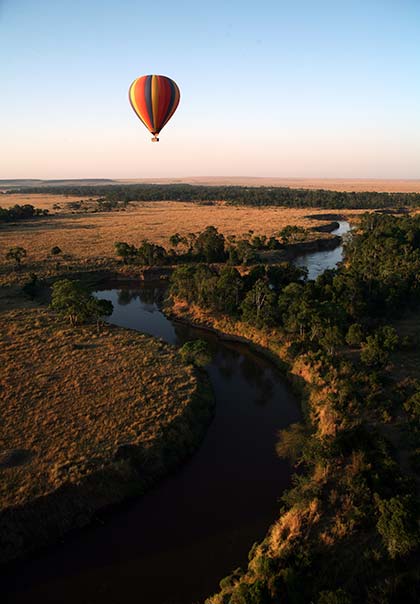
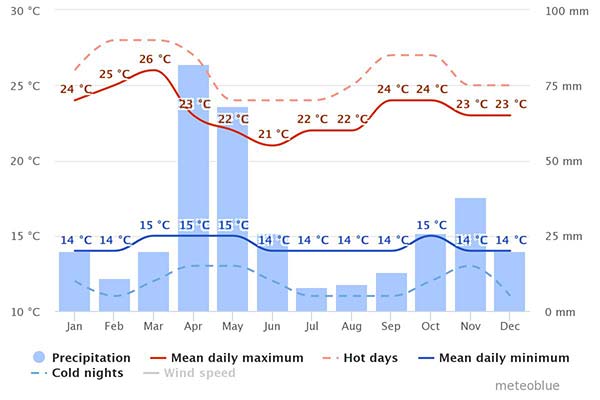
The weather
in Kenya
Travelling during the rainy season in Kenya means that there are much fewer tourists and the prices will be generally much lower. The national parks are a beautiful lush green and the air feels much clearer than during the dry season. The height of the wet weather hits Kenya from April to June so we generally don’t recommend this time as a good time to travel.
Rather than following seasons, the weather in Kenya is categorised by the amount of rainfall it receives. The ‘long rains’ last from late-April to early May. The ‘cool season’ receives much less rain and runs from June to October. The ‘short rains’ season lasts from November to mid-December and the dry season runs from December to March. The temperature is at its hottest from January to February.
Best time for a safari in Kenya
The dry season from June to October is the best time for spotting wildlife on a safari in Kenya. Animals are much easier to spot since the vegetation is dry and sparse which leads wildlife to gather at watering holes. However, animals can be spotted all year round, not just during the Great Migration. Birds migrate from September to April and babies are born in the wild towards the end of the year.
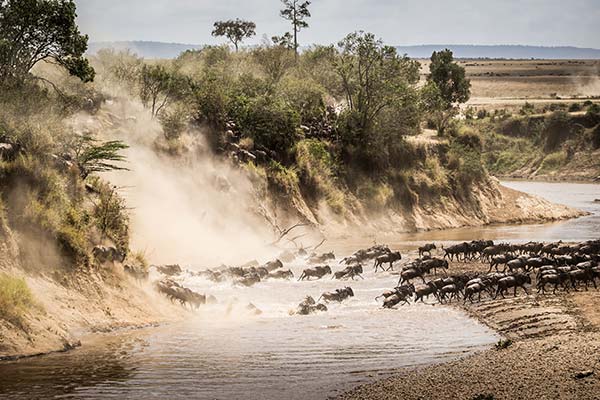
Four Seasons in Kenya
Autumn
March-May
As Kenya is in the Southern Hemisphere, the seasons are the opposite to the Northern Hemisphere. The average temperature during Autumn in Kenya floats around 29°C. March is generally an OK time to visit Kenya but the heavy rain begins in April. The humidity is also quite extreme making it a little unbearable.
Winter
June - August
You will experience the end of the rainy season in June but from the end of June onwards, the rain will have almost completely stopped. June and August are excellent times for visiting Kenya’s stunning beaches. The weather is mostly dry and very sunny. Winter is also the best time for safaris.
Spring
September - November
September is a fantastic time to visit Kenya. The sun is out, the weather is dry and the temperatures tend to sit around 29°C. September is also your last chance of witnessing the Great Migration. The second rainy season begins at the end of October but with the warm weather increasing in November.
Summer
December - February
Summer is the perfect time to hit the beaches in Kenya with the ocean being especially warm. The average temperature during summer is around 32°C, with very hot, dry conditions. This is a great time to explore national parks and experience festivals and events around Kenya.
Festivals & Events
in Kenya
Kenya has a fascinating, rich culture with proud people and diverse traditions. Their unique art, fashion, gastronomy and way of life is celebrated with style. Over 70 tribes can be found in Kenya alone, each one with their own unique culture. These cultures are celebrated all over Kenya with a string of entertaining, vibrant and wonderful events. Here’s our pick of the best events to attend in Kenya.
Rusinga Festival
Rusinga Island
(December)
This two day festival is a celebration of the Suba culture. To keep the Suba traditions alive, each year hundreds of people gather to appreciate traditional Suba music, art, sports and food.
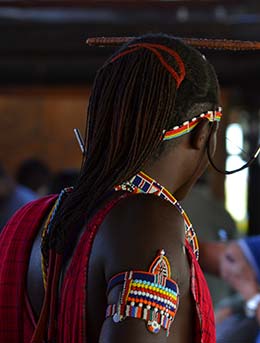
Nairobi Restaurant Week
Nairobi
(25th January - 4th February)
If you’re a bit of a foodie, Nairobi Restaurant Week is the one for you. Over 10 days, restaurants all over Nairobi serve special menus, discounts, sample menus and often free drinks and cocktails.
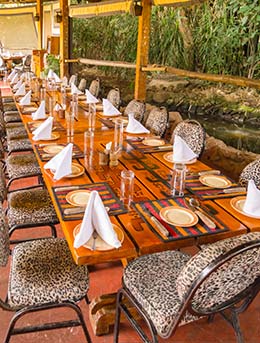
Lamu Cultural Festival
Lamu Island
(November)
Lamu Cultural Festival celebrates and teaches the Lamu beliefs, traditions and culture. It’s rich history, ancient architecture and interesting people are captivating. Expect dhow sailing, delicious food, Swahili poetry and henna painting.
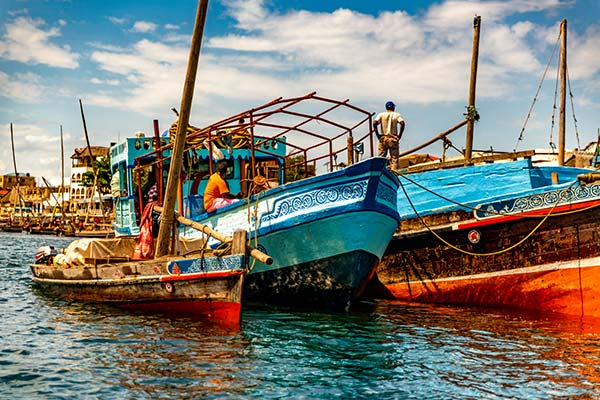
Rhino Charge
Nairobi
(31st May)
Rhino Charge is the perfect festival if you’re after a bit of excitement! Off-road cars race along a series of routes, with onlookers camping out along the sides. The event is held every year to raise money for the conservation of the Aberdares Forest.

Africa Nouveau
Nairobi
(8th - 10th March)
Africa Nouveau is one of the biggest African celebrations in Kenya. You’ll find everyone dressed in traditional African clothes, delicious African food stalls lining the streets, local artists showing their work and live African music.
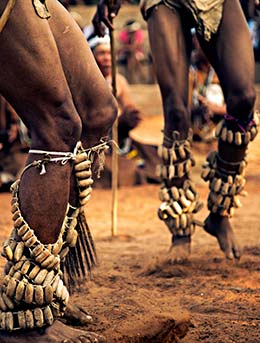
Lake Turkana Festival
Lake Turkana
(13th - 15th June)
Lake Turkana Festival celebrates ten different cultures in the region. The communities work together to promote peaceful coexistence, with each performing various demonstrations, dances and recitals, sharing their local food and costumes with each other.
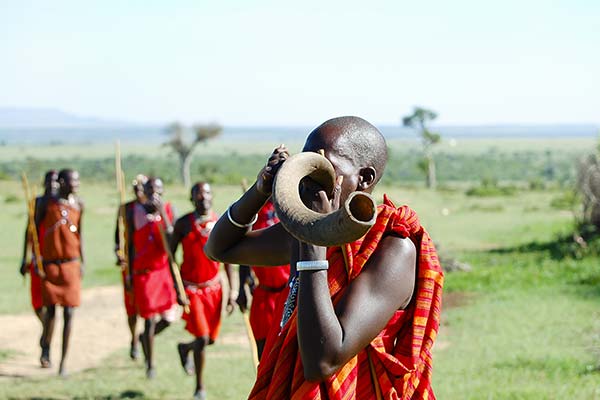
Mombasa Carnival
Mombasa
(November)
Mombasa Carnival is one of the biggest events in Kenya. It’s lively, exciting and full of surprises. Celebrating both Arabian and African cultures, expect colourful floats, loud African music, parades, street foods and live performances.
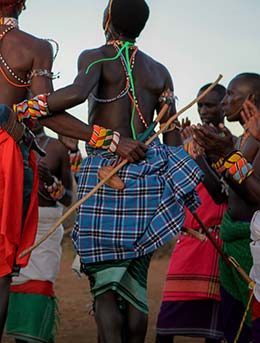
Maulidi Festival
Maulidi
(28th - 29th October)
The historic Maulidi Festival is a big feature on the Islamic calendar. Thousands of Muslims from all over the world come to celebrate the birth of the Prophet Mohammad. Community building activities take place such as swimming, donkey races and henna competitions.
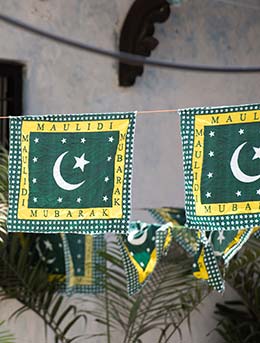
Other public holidays to be aware of when planning your trip to Kenya
- 1 January - New Year’s Day
- 19 April - Good Friday
- 22 April - Easter Monday
- 1 May - Labour Day
- 1 June - Madaraka Day
- 5 June - Idd-ul-Fitr
- 12 August - Idd-ul-Azha
- 10 October - Moi Day
- 21 October - Mashujaa Day
- 27 October - Diwali
- 12 December - Jamhuri Day
- 25 December - Christmas Day
- 26 December - Boxing Day
Featured Tours





